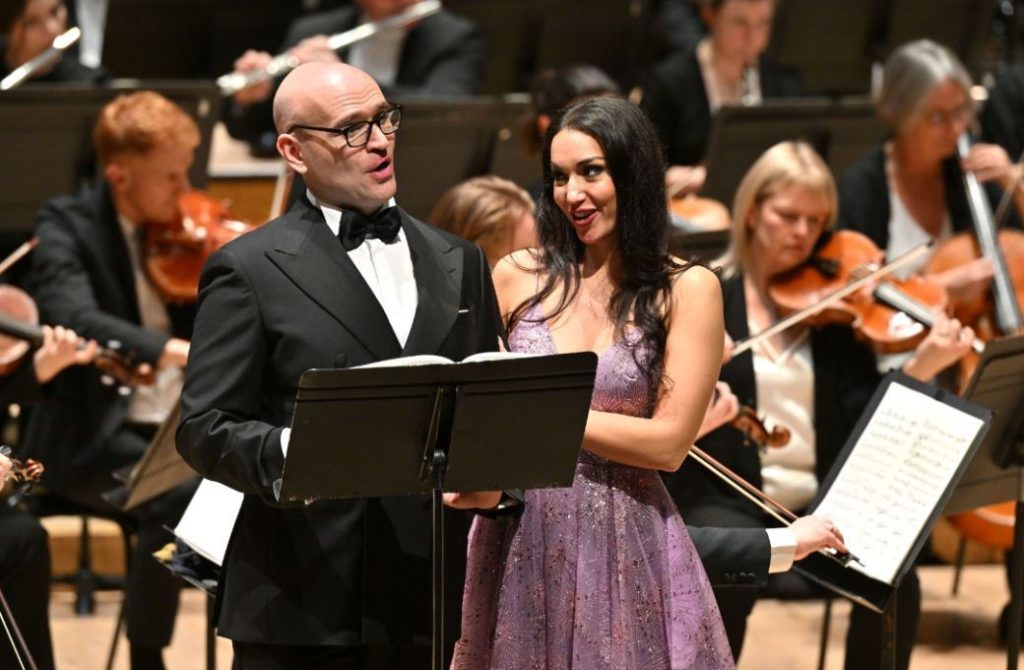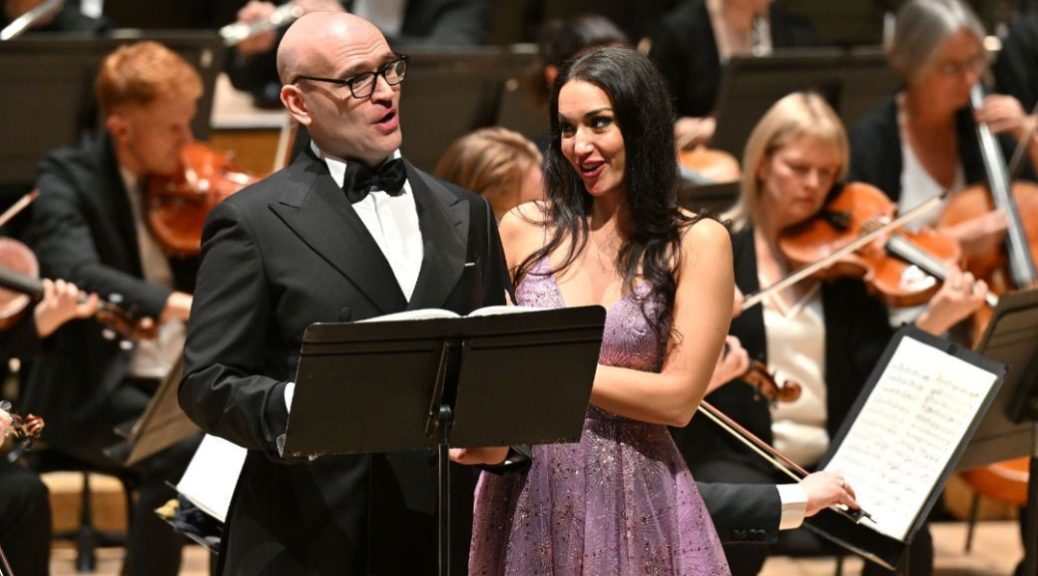
 (4 / 5)
(4 / 5)
With the tenure of Antonio Pappano with the London Symphony Orchestra now under way, London will be treated to both concert and operatic offerings. The idea of these concert operas are mouth-watering, the first outing was Puccini’s La rondine.
One of the Italian masters lesser known works, it owes a lot to La traviata and the glamour yesteryear of Paris. Though the story has a focus on comedy for the first two acts, the love story flutters about in the third act, not necessarily fulfilling the narrative structure. Musically, this is a sparkly affair: lots of fun and mirth from all involved. The sweeping melodies are met with Puccini’s modern harmonies, clever in many ways. There is the famous aria and absurdly soaring high notes, ensemble moments that hark back to Verdi, who’s shoulders Puccini rests on.
Pappano and the orchestra were pristine, this was their second performance of La rondine this week. Everything was acute and perfect. Strangely out of all the instruments aside the strings, it was the marvellous glockenspiel and harp that stood out. The piano also featured, though is used less effectively in the pot. The chorus were also a triumph playing rowdy students and party goes, all that was missing was the champagne bottles in hand. The time was brief though they shone in the middle act, you couldn’t resist their impeccable charms.
The cast were also great. Carolina López Moreno as Magda de Civry was the stand out, our beloved diva with a voice working extremely well here. Her control and drive for these luxurious moments never waned, a real star. Michael Fabiano as Ruggero Lastouc is here love interest and is just as fine. His hefty role for tenor has a lot in it, vocally very intense and Fabiano pulls many things off to acclaim. The maid Lisette, Serena Gamberoni has her nose in the air, with a genuine dislike for Magda, a second soprano role that is not always noteworthy. She seemed to enjoy the fussy role anyway and sang well. Paul Appleby as Prunier who is in love with Lisette, gets curious, funny bars his tenor working really well in Puccini. He gets the most laughs and is not a bad actor either. There were several party going supporting roles that also shone, too many to mention, but some up and coming and established singers were in the fold.
It’s a short affair under two hours and musically is rather pleasing. The story may not grip like other Puccini, yet for its size and colour it’s a lovely thing to admire.

